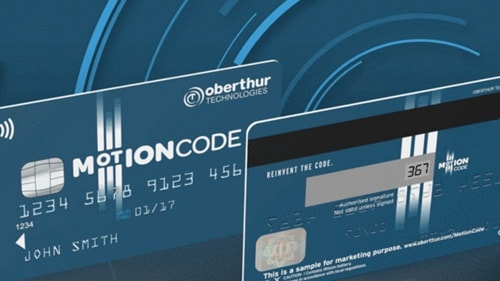Credit cards with anti-fraud screens
This card has a digital display on the back that can display a random security code every hour.
» What to do to avoid losing money when paying by card?
French cybersecurity firm Oberthur Technologies is in talks with British and French banks to develop the technology. By the end of the year, the card will be available to French customers.
However, experts say the new design is too late. "I'm surprised it took so long to come up with this," said Alan Woodward, a professor of cybersecurity at the University of Surrey (UK).
The card will provide an additional layer of security by replacing the static three-digit code printed on the back (CVV code) with a small screen that will randomly display a code every hour. The card will be equipped with a super-thin lithium battery that can last for three years.
 |
The screen on the back of the card will replace the pre-printed 3-digit security code. Photo: Oberthur Technologies |
“This technology has been around for a while. Now they have to convince the card companies that it’s worth doing. It can be expensive, too, because you have to modify the machines,” Woodward said.
One downside to these cards is that users will no longer be able to remember their security codes. And they will have to check their cards every time they make an online payment. French banks such as Societe Generale and Groupe BPCE are preparing to issue these cards to customers, after a pilot program last year.
According to the Financial Fraud Authority, credit card fraud in the UK was worth £755 million last year, affecting more than 20,200 customers. There are many ways criminals can get their hands on cards and card details, from stealing data online to installing tracking devices on cash machines or even installing malware on machines.
In response to these actions, banks also have many new authentication solutions, such as biometrics. This technology is considered more secure in identifying customers.
However, recent research by security firm Kaspersky Labs shows that cybercriminals are also taking advantage of these new technologies. They have found at least 12 sellers of scanners capable of stealing fingerprints. Some can also take hand, vein and iris samples.
David Emm, head of security at Kaspersky, said the randomly displayed security code would reduce the risk of money theft. However, for added security, banks should consider displaying it on “another device.”
He said users should also be careful with their online activities. They should install security updates promptly, use secure passwords, be careful when using public Wi-Fi and not reveal too much personal information online.
According to VNE
| RELATED NEWS |
|---|
